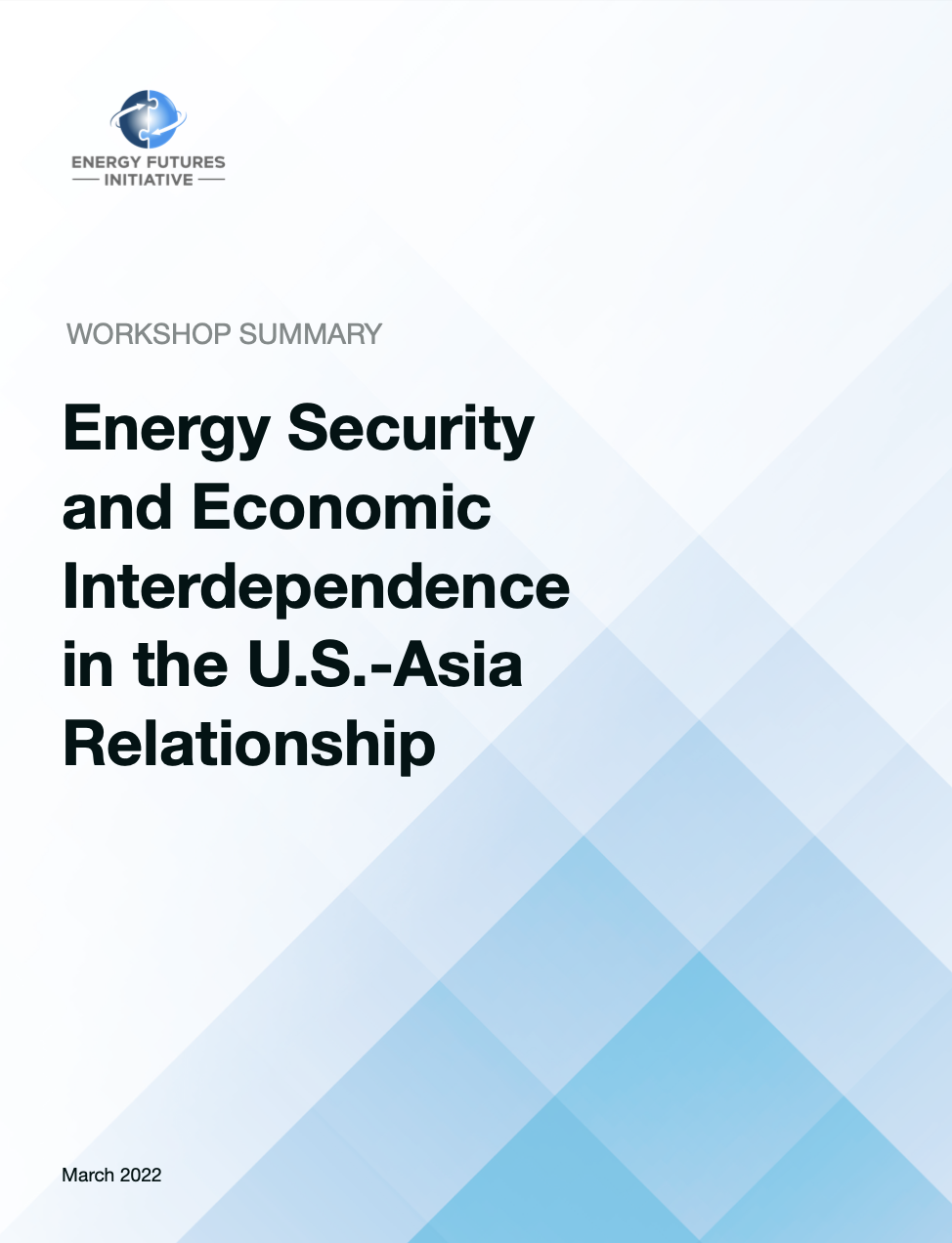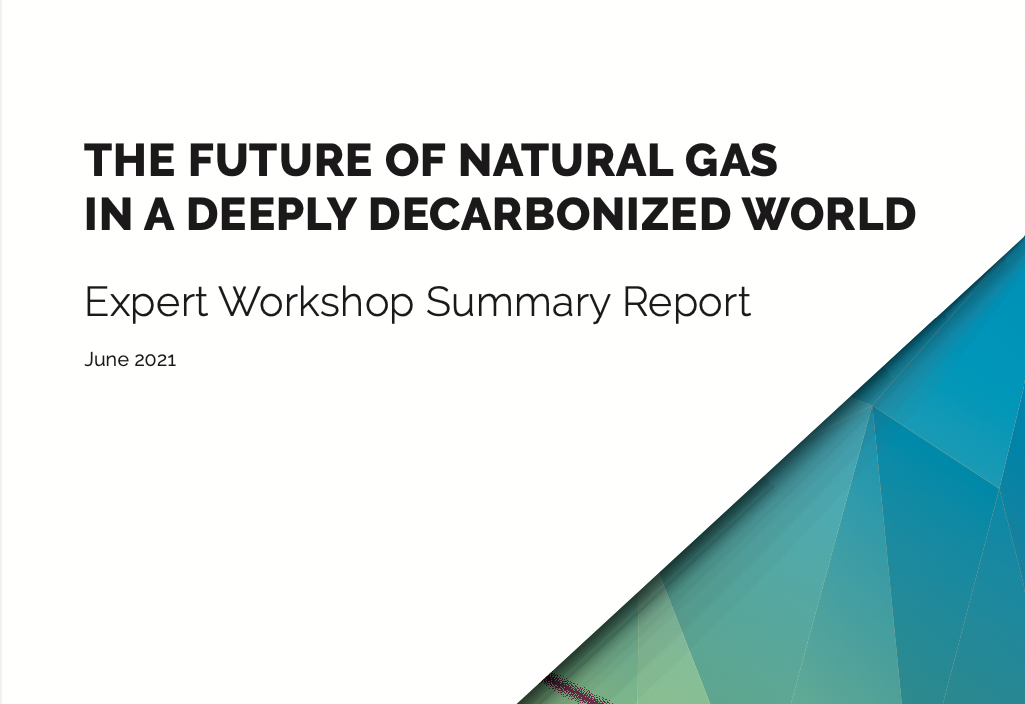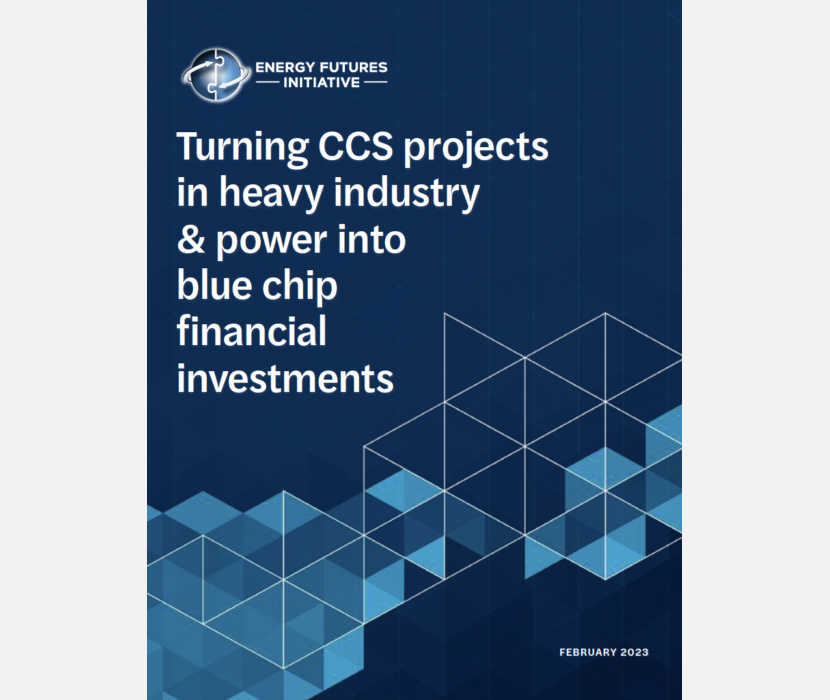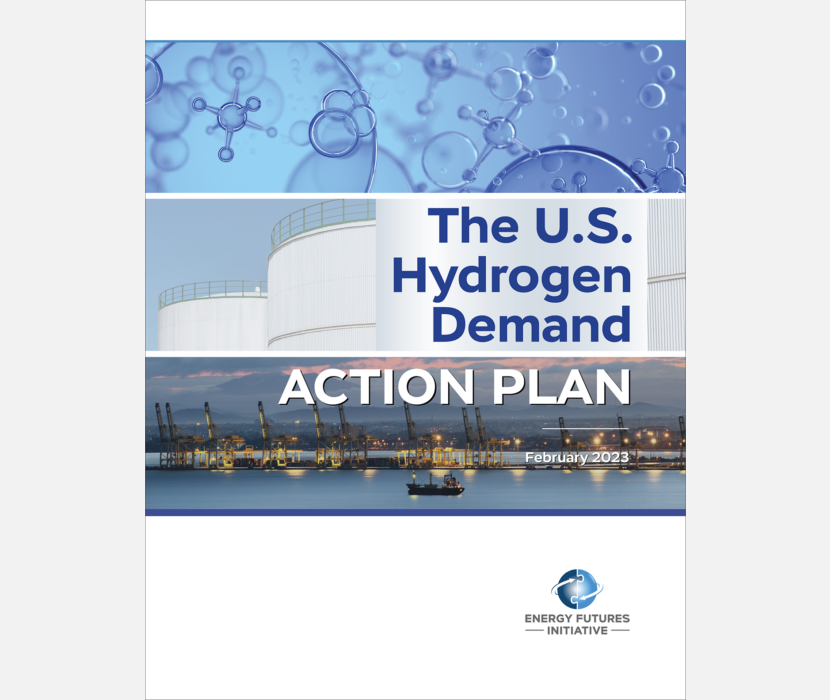Global and regional natural gas market dynamics are rapidly evolving according to geopolitics, supply challenges, and increasing commitments to deep decarbonization. Exploring these issues, the Energy Futures Initiative (EFI) published this report in March 2022, which summarizes a February 8, 2022, EFI workshop on energy security and economic interdependence in the U.S.-Asia relationship. This workshop marked the formal launch of Phase Two of EFI’s study, The Future of Natural Gas in a Deeply Decarbonized World (the Phase One workshop report was published in January 2021).
Asia is currently the number one destination for U.S. liquefied natural gas (LNG) exports, although U.S. exports to Europe in 2020 increased dramatically and volumes were almost as large as those to Asia. The mounting pressure to resist building or financing any new natural gas infrastructure in the United States, including LNG infrastructure, has raised concerns throughout Asia that the region’s energy and economic security could be undermined by policies that could reduce or eliminate the availability of abundant and affordable supplies of LNG, a key transition fuel for the region.
This workshop had three sessions: (1) The Economic Impacts of U.S.-Asia Energy Trade; (2) The Role of U.S. Liquified Natural Gas (LNG) in Energy Transition of Asian Economies; and (3) The Geostrategic Role of U.S.-Asia Energy Trade.
- Session 1 focused on the Economic Impacts of U.S.– Asia Energy Trade and included a presentation on EFI’s Global Gas Study Phase One results and a presentation on a recent study by The Institute of Energy Economics, Japan (IEEJ) covering the importance of U.S. LNG to the energy transition and U.S. economy. Growing LNG and hydrogen exports could provide tens of thousands of jobs and billions of dollars of economic value to the U.S. economy.
- Session 2 focused on the role of U.S. LNG in the Asian energy transition. Renewable energy resources alone will be insufficient to reach the clean energy goals of Asian countries, participants said, and coal-to-gas fuel switching, as well as clean hydrogen production, would likely be needed and are enabled by continued LNG imports. Presenters also expressed the need for additional natural gas infrastructure and said that investment certainty from the United States can help improve financing in Asia.
- Session 3 focused on the geostrategic issues associated with the U.S.-Asia energy trade. Participants said a robust definition of international energy security should include infrastructure security, energy affordability, and availability of supply. The role of internationally traded fuels as a geostrategic advantage will slowly evolve in coming decades, and the role of metals and materials will increase in prominence.
Current challenges that natural gas faces, including security risks, supply chain challenges, and decarbonization needs, should be evaluated to develop potential solutions from both technology and policy perspectives. One of the findings from this workshop and Phase One of EFI’s study was how distinctive the role of natural gas is across different regions and countries. Therefore, the future of natural gas should be investigated in the regional or country context considering energy, economic, and security challenges.
Keynote speakers included Ernest Moniz (CEO of EFI), Tatsuya Terazawa (Chairman and CEO of the Institute of Energy Economics), David Turk (Deputy Secretary of Energy, U.S. Department of Energy), and Jason Bordoff (Co-Founding Dean of the Columbia Climate School).
Related Content
(Share this post with others.)






